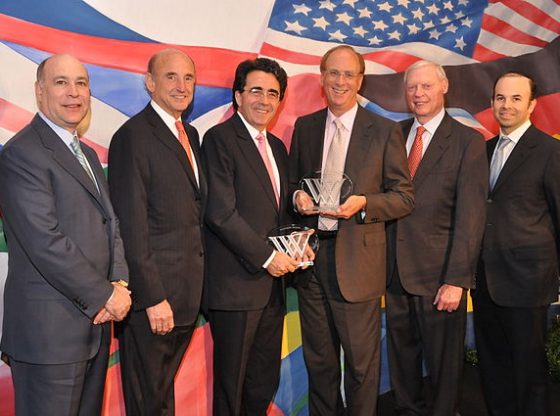The Biden administration’s plan to impose climate disclosure requirements on the financial sector draws on the input of a green consultancy that sold carbon credits derived from China’s Xinjiang province, according to a Daily Caller News Foundation review of public documents.
The Securities and Exchange Commission (SEC) is set to release its final climate disclosure rule in the coming months, and the agency’s proposed rulemaking documents cite the Swiss-based climate consultancy South Pole multiple times. Likewise, the SEC spoke with a high-ranking South Pole employee about the rule after the firm had sold carbon credits generated in a region of China known for forced labor.
South Pole touts itself as “[striving] for a world where businesses, governments and communities make climate action the new normal.” In a November piece, the investigative group Follow the Money reported that South Pole sold carbon offset credits derived from projects in Xinjiang, China, the epicenter of the Chinese Communist Party’s repressive campaign against Uyghur Muslims.
“Given the specious, often clearly fraudulent nature of the carbon credits rubric in general, can anyone be surprised about South Pole’s apparent scam? If our media establishment were doing its job, the carbon credits grift would rank as one of the major scandals of our time,” David Blackmon, a 40-year veteran of the American oil and gas industry who now regularly consults and writes about the energy sector, told the Daily Caller News Foundation. “The fact that the Biden SEC would rely on these apparent grifters so strongly as support for a major, economically destructive regulatory action is unsurprising, and just in keeping with the overall gaslighting character of the Biden regime.”
South Pole is cited several times in the SEC’s disclosure proposal, and the company’s director of sustainable finance, Rebecca Self, joined a January 2022 call with SEC staff to discuss the potential costs of reporting climate-related risks and statistics, according to a publicly available SEC memorandum.
South Pole sold carbon offset credits derived from Xinjiang for several years, stopping in 2021, according to Follow the Money. South Pole would buy the credits from their Chinese partner for less than one euro each, and then resold them to clients like Spotify, British Petroleum and the European Youth Parliament for more than four euros apiece.
The carbon market allows companies to buy and sell carbon credits that nominally offset emissions generated in their operations. “Carbon credits are measurable, verifiable emission reductions from certified climate action projects,” according to South Pole’s own definition.
It is important to note that it is unclear whether any of the operations that formed the basis for South Pole’s credits had any exposure to forced Uyghur labor, according to Follow the Money. However, the ubiquity of forced labor in the region during the time that the company was selling the credits certainly raised those risks above typical risk levels seen elsewhere in the world.
Within the first few years after its founding in 2006, the firm identified Xinjiang’s cotton fields as a potential source for carbon credits, according to Follow the Money. The region’s cotton farmers, many of whom are Uyghurs, would typically burn the twigs and sticks created as a harvesting byproduct on the fields, leave them to rot or collect and dump them elsewhere.
Rather than wasting those twigs, South Pole realized that they had potential value as offsets if they could be converted into fuel at a Chinese biomass plant, according to Follow the Money. This realization reportedly became the basis for the firm’s Xinjiang-derived carbon credits. The company has drawn scrutiny for its operations in other parts of the world beyond China as well.
South Pole is alleged to have sold credits derived from its landmark Kariba Forest Protection project in Zimbabwe, despite knowing that the Kariba project may have only actually produced one-third of the offsets the company claimed to the public, according to a separate investigation conducted by Follow the Money.
If the SEC’s March 2022 proposal is finalized in its current form, the SEC would require publicly-traded corporations to disclose climate-related risks to their businesses in financial filings. Additionally, the SEC’s proposal would require companies to disclose the greenhouse gas emissions directly caused by their operations, those generated by the energy and electricity they use to power their operations and indirect emissions produced in companies’ upstream and downstream supply chains.
Scores of congressional Democrats have urged the SEC and the agency’s chairman, Gary Gensler, to swiftly adopt the disclosure standards. However, many corporate interests, including BlackRock CEO Larry Fink, have reportedly pushed back against the rule as proposed, and reports have surfaced suggesting that the agency may water down the proposal when it moves to finalize the rules sometime in early 2024 after several delays.
The SEC, South Pole and the White House did not respond immediately to the DCNF’s requests for comment.












